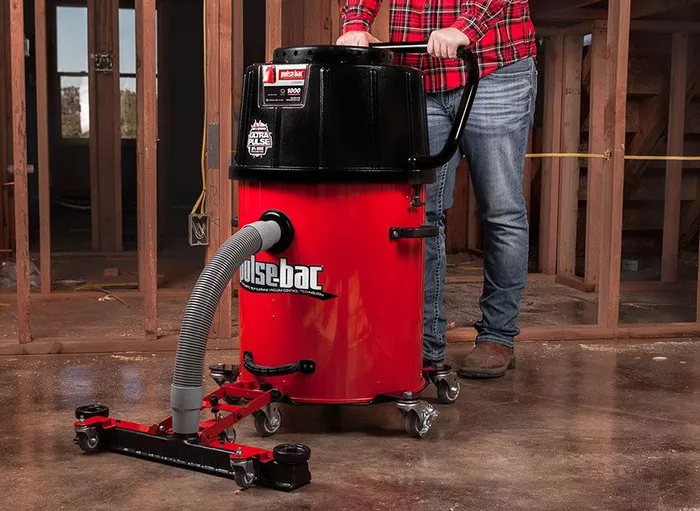Regular vacuuming is essential for maintaining a clean and healthy indoor environment. In this article, we will explore the factors influencing vacuuming frequency and provide guidelines for how often you should vacuum your room to effectively remove dust, dirt, allergens, and other pollutants from carpets and floors.
Importance of Regular Vacuuming
Vacuuming plays a crucial role in eliminating dirt, dust, pet hair, and allergens that accumulate on floors and carpets over time. By removing these particles, vacuuming helps improve indoor air quality and reduces the risk of allergies, respiratory issues, and other health problems associated with indoor pollutants.
Factors Influencing Vacuuming Frequency
Foot Traffic
The amount of activity in a room directly impacts how quickly dirt accumulates on floors and carpets. High-traffic areas, such as entryways, hallways, and living rooms, accumulate dirt more rapidly and may require more frequent vacuuming.
Presence of Pets
Pets shed hair and dander, contributing to dirt buildup on floors and carpets. If you have pets, especially those that spend a lot of time indoors, you may need to vacuum more frequently to keep your home clean and odor-free.
Indoor Air Quality
Individuals with allergies or respiratory conditions may need to vacuum more frequently to reduce allergen levels in their homes. Vacuuming helps remove dust mites, pollen, and other allergens from carpets and floors, improving indoor air quality and reducing allergy symptoms.
Type of Flooring
Carpets tend to trap more dirt, dust, and allergens than hard flooring surfaces. As a result, rooms with carpeting may require more frequent vacuuming to maintain cleanliness and prevent the buildup of pollutants.
Environmental Factors
Outdoor pollution, nearby construction, or open windows can introduce additional dirt and debris into indoor environments. Consider these factors when determining how often to vacuum your rooms, especially during periods of increased outdoor activity or pollution.
General Guidelines for Vacuuming Frequency
High-Traffic Areas
Vacuum high-traffic areas, such as entryways, hallways, and living rooms, at least once or twice a week to prevent dirt buildup and maintain the appearance of carpets and floors.
Medium-Traffic Areas
Vacuum medium-traffic areas, such as bedrooms and home offices, once a week to remove dirt and dust that accumulate over time.
Low-Traffic Areas
Vacuum low-traffic areas, such as guest rooms and formal dining rooms, every 1-2 weeks, as they accumulate less dirt and may not require as frequent cleaning.
Under Furniture and Hard-to-Reach Areas
Include under furniture and hard-to-reach areas in your regular vacuuming routine, even if they are less frequently used. These areas can accumulate dust, pet hair, and other debris over time.
Specific Recommendations for Different Rooms
Bedrooms
Vacuum bedrooms at least once a week to remove dust, skin cells, and allergens that accumulate on floors and carpets.
Living Room/Family Room
Vacuum living rooms and family rooms once or twice a week, depending on the level of activity in the room and the presence of pets.
Dining Room
Vacuum dining rooms once a week to remove food crumbs, spills, and other debris from carpets and floors.
Home Office
Vacuum home offices once a week, especially if the room doubles as a pet-free zone or has high foot traffic from family members or guests.
Additional Considerations
Vacuuming Techniques
Use effective vacuuming techniques to ensure thorough cleaning, such as using slow, overlapping strokes, paying attention to corners and edges, and adjusting the vacuum’s height settings for optimal performance on different flooring types.
Maintenance of Vacuum Cleaner
Regularly clean and maintain your vacuum cleaner to ensure optimal performance and longevity. This includes emptying or replacing vacuum bags or canisters, cleaning filters, and checking for clogs in the suction hose or brush roll.
Seasonal Cleaning
Consider increasing vacuuming frequency during seasons with higher pollen counts or increased indoor activities, such as holiday gatherings or home renovations. More frequent vacuuming can help remove allergens and debris that accumulate more rapidly during these times.
Signs That Vacuuming Is Needed More Often
Visible Dirt and Debris
If you notice dirt, crumbs, pet hair, or other debris on the floor, it’s a clear sign that vacuuming is needed to remove accumulated pollutants and maintain cleanliness.
Increased Allergy Symptoms
If allergy symptoms worsen or become more frequent, it may indicate the need for more frequent vacuuming to reduce allergen levels in the home.
Foul Odors
Lingering odors in the home, especially in carpeted areas, may indicate a buildup of dirt, dust, and other pollutants in the carpet fibers. Vacuuming can help remove these contaminants and eliminate unpleasant odors.
Conclusion
In conclusion, regular vacuuming is essential for maintaining a clean and healthy indoor environment. By removing dirt, dust, pet hair, allergens, and other pollutants from carpets and floors, vacuuming helps improve indoor air quality and reduce the risk of allergies, respiratory issues, and other health problems. Establishing a consistent vacuuming schedule based on factors such as foot traffic, presence of pets, indoor air quality, and type of flooring is crucial for effectively removing pollutants and maintaining a clean and healthy home.

